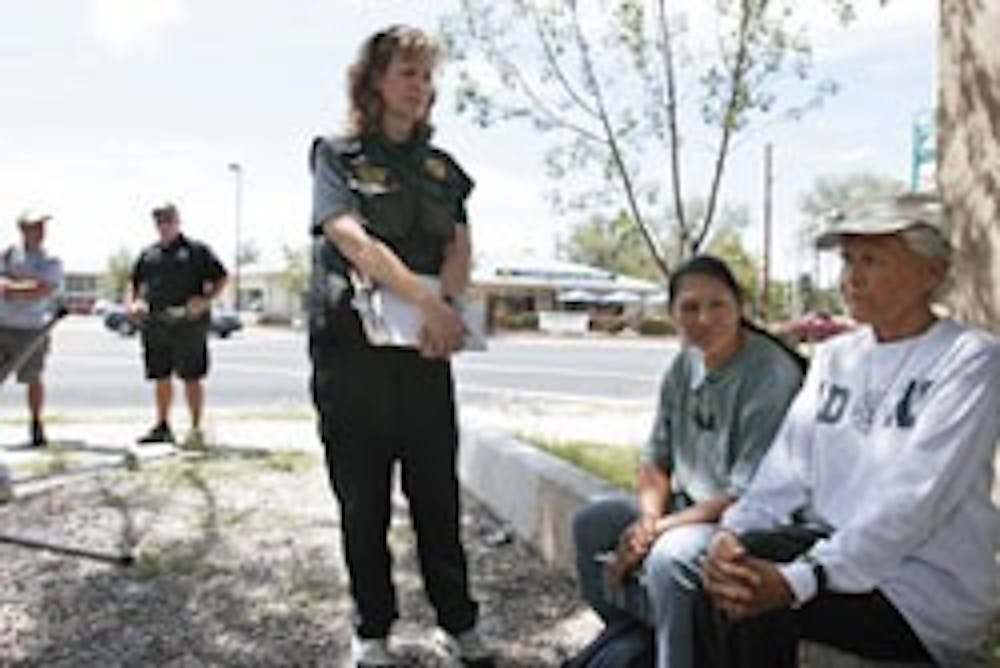by Caleb Fort
Daily Lobo
At noon on Aug. 6, Wil Wroda met with two Albuquerque Police Department patrolmen at Robinson Park in Downtown.
The group traveled around the area, giving water and snacks to homeless people sleeping in parks and sitting on the sidewalk. They also gave the homeless information about local shelters, feeding sites and other services.
"I think it's making a huge difference already," said Wroda, who performs outreach for Health Care for the Homeless. "I couldn't even count the number of people we've hooked into social and psychiatric services."
Get content from The Daily Lobo delivered to your inbox
The program, called the Strategic Care Team, began March 10.
A woman the outreach team calls "Mom" was homeless for several years but moved into an apartment with the help of outreach programs.
She was wary of the police but now appreciates their efforts, she said.
"I was apprehensive about them being here at first," she said. "But I think it's a terrific program for people who want the help."
Wroda said the collaboration represents a change in the relationship between law enforcement and social service providers.
"The police and service providers have had an atrocious relationship in the past," he said. "Now we're helping each other."
Karen Fischer, an APD spokeswoman, said the program will expand to the University, Heights and Nob Hill areas some time this fall.
Jerome Armijo, an APD officer, said the program helps police aid the homeless.
"I don't think there was a lot of communication as far as what services were available," he said. "Now we have more of a working relationship."
The collaboration is beneficial to service providers, because the two patrolmen, both of whom have walking beats Downtown, know individual homeless people and their problems, Armijo said.
"You get to know who's who," he said. "It's almost like the old marshal in a small town. You know who needs help and who's doing criminal things."
Many people, often drug dealers, pretend to be homeless so they are less likely to get arrested, he said.
"When people from the neighborhoods complain to us about illegal activity, a lot of the time we're able to say, 'No, it's not the homeless,'" he said. "A lot of these people are from your neighborhood."
The program has improved the relationship between the police and the homeless, he said.
"We're able to provide a service and let these people that are homeless see that there's another side to the police department," he said. "I think they thought we were against them. They thought we were out there to cause them grief."
Before the program, the only interaction between homeless and police was confrontational, Fischer said.
"All we were doing was citing somebody or arresting somebody, and that may not really address the issue," she said. "Just because somebody is homeless in the community doesn't mean enforcement is the right response."
Nathan Fox, who lives near Robinson Park, said the program is a good idea.
"They've been instrumental in addressing some of the problems in the park," he said. "I think that their approach will be successful."
However, the program may be too soft on people committing crimes, he said.
"It's sending a mixed message to people who aren't homeless but who are criminals," he said. "I think a more aggressive sweep would be more successful."
Armijo said he has arrested five drug dealers while on outreaches.
"We do not accept illegal activity," he said. "It is absolutely not tolerated."
The program was modeled after a similar program in Phoenix, Fischer said.
The program will probably see several changes, she said.
"It's a complete learning process. We're doing things we've never done before," she said. "We're changing as we go."
The outreach is part of the officers' and Wroda's normal duties.






